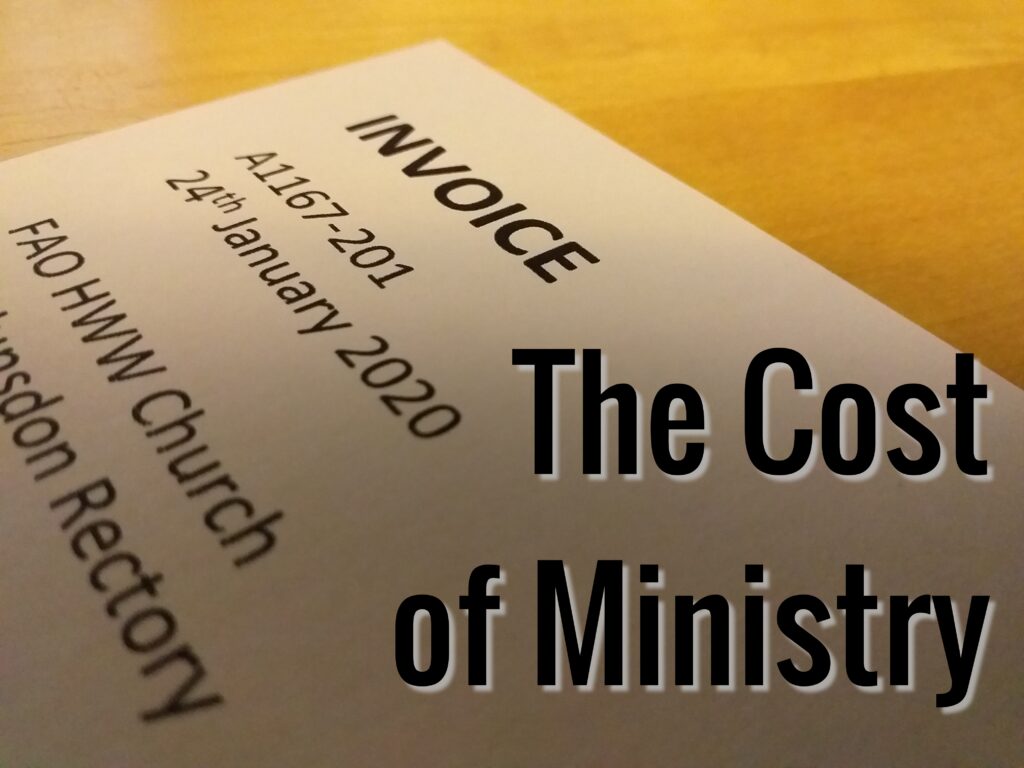Cost of Ministry
Christians should not be ignorant about the costs of Christian ministry.
Two Myths
There is a myth that the church is rich, and that the nobility bankrolls its activity. This may have been true a long time ago in history, but it is no longer. The responsibility for the upkeep of most parish church buildings and the cost of running the different ministries they offer falls squarely upon the shoulders (and wallets) of the worshipping congregation.
There is also a myth that the costs of ministry are low. To be fair, this is probably not a myth ever articulated, but rather a fact which is little considered by most people. When did you last wonder how much it costs the church to do the things it does?

A Dose of Reality
The church buildings in this benefice are all listed buildings and require particular care. A rolling programme of Quinquennial (five-yearly) inspections identifies necessary maintenance work, and often specialist craftsmen with prices to match their expertise are required to undertake the work. Heritage Societies are very keen to make sure the work is carried out, and carried out properly, whilst at the same time not always giving financial assistance (there are so many calls on their money). The government makes little or no provision towards the upkeep of our architectural heritage; if there is any funding, it comes from charitable bodies or from money set aside by the National Lottery.
Then there is the cost of training, paying and housing any full-time clergy (and providing for their pension). The Church of England pays a retainer called a “Stipend” to its clergy which is designed to be a living wage – enough money to keep them from needing to find another job so they can devote their full attention to the cure of souls!
Finally, there are the costs of actually conducting ministry. Like other public buildings and homes, the churches must pay insurance and utility bills, which are, by virtue of the nature of the buildings, all more expensive than apply to the average home. Churches also need to buy things like hymnbooks and wine (for Holy Communion), pay organists and architects, purchase resources for work with children and young people, send people on training courses and produce all kinds of printed documents from letters to service sheets. And Churches often give money away too; the Church of England gives more money to charitable causes every year than the Children in Need telethon!
It cannot be stressed enough that the majority of the money comes from people who attend church from week to week either by direct regular donations, by Gift Aid reclaimed on those donations or as a result of their labours in arranging other fund-raising ventures!